6. Existential Burden of a Modern Human
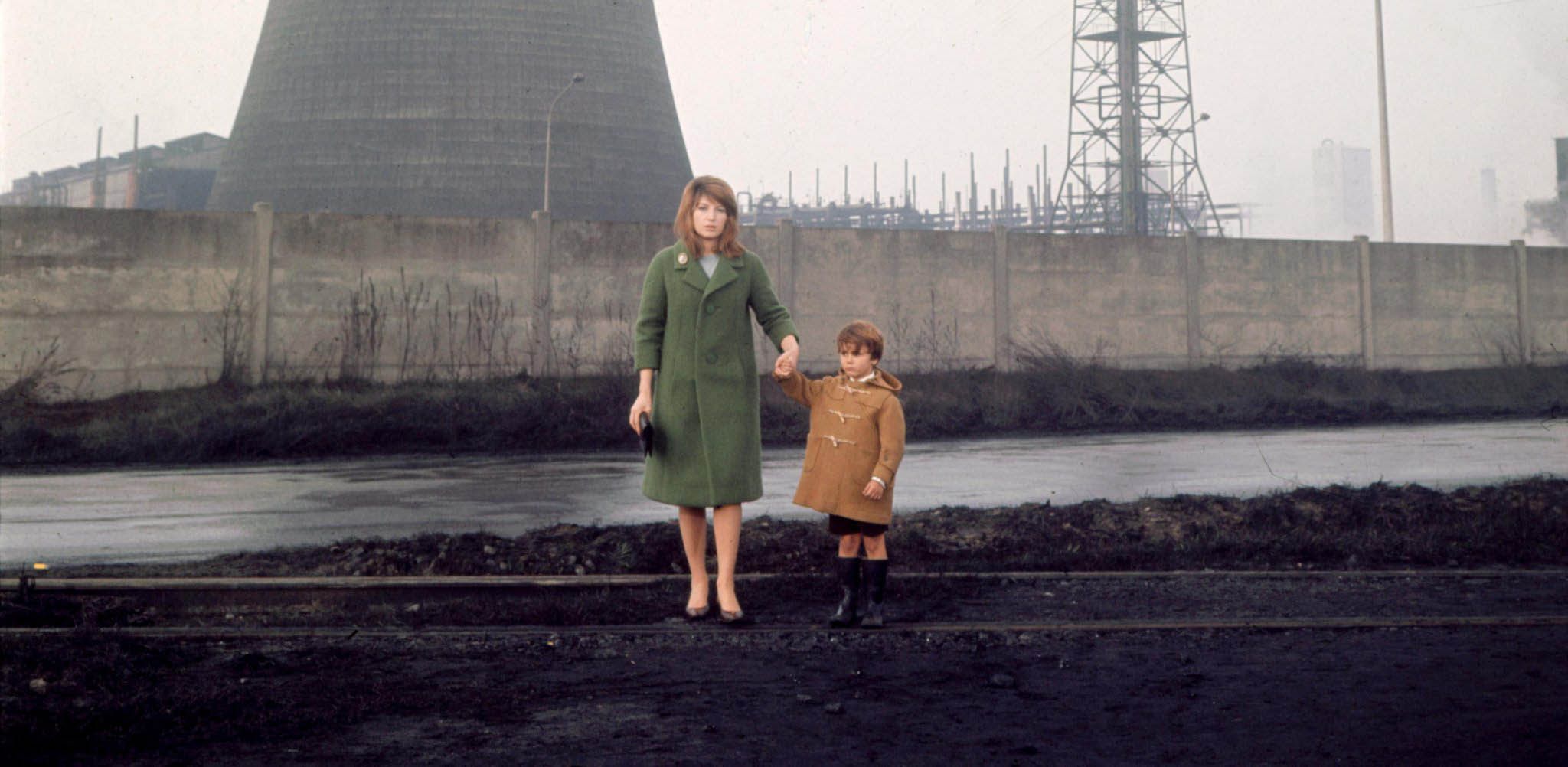
The emotional expenses of outward advancement is the recurring theme of Red Desert and, generally, Antonioni’s filmography. Towards the end of the film, there is the scene where desperate and distraught Giuliana visits Corrado at his apartment. She experiences severe internal mayhem which leads to an emotional outburst. She tries to open up about her most deeply seated fears and worries. Finally, she utters that she fears of the town she lives in, the people, the streets, the colors, the factories. She, essentially, fears everything other people greatly benefit from. She is the only one who detects the true disaster that trundles around her town.
There is a very apparent allegory when Giuliana enthusiastically tries to paint empty walls of her shop with various colors. She cannot choose between few options that she believes are “cold colors”. Giuliana is eager to give some semblance of life to her surroundings, however, she herself is unable to come up with more vibrant shades as she unconsciously became used to her environment.
Little later, Giuliana attempts to reveal her mental state to Corrado, yet she speaks in third person about herself, attributing the details of her internal anguish to someone she met at the hospital. According to Giuliana, doctors told her to find things to love, like husband, son, dog, or a job, but a girl felt like there was “no ground beneath her, like she was sliding down a slope, sinking, always on the verge of drowning.”.
Antonioni believes that people like Giuliana, ones who are incapable of adapting to a very progressing environment, are destined to be stagnated in uncertainty and doubts. They are left in an amiss world with no clue how to operate. Thus, the sense of love becomes a very impenetrable and ephemeral concept for them.
7. The Peak of Alienation
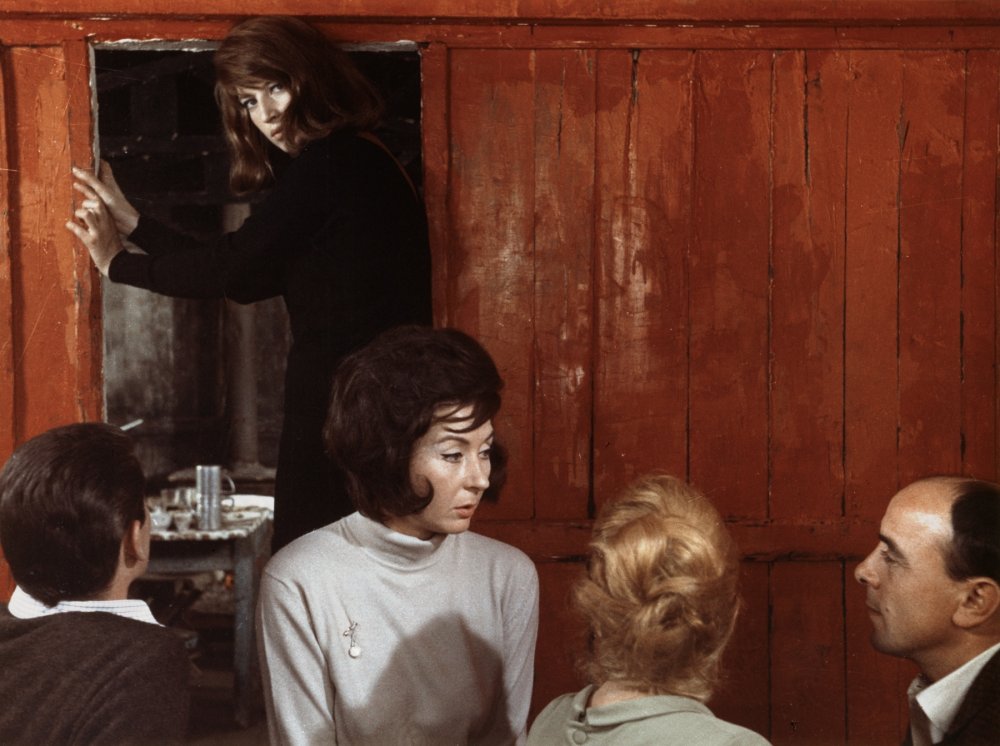
As mentioned, Red Desert came right after the so-called Alienation Trilogy. Even though, it is not formally a part of the set, it explores the peak point of its main them – alienation. I always believed that the characters that surround Giuliana resemble the ones that appear in L’Avventura, La Notte, and L’Eclisse. They are superficially adapted to everything that goes on, but in reality, they experience a very extreme form of ennui due to their ontological bareness. Giuliana also lives in ennui, but she comprehends it; she feels tortured by it. Giuliana never tries to adapt, she only desires to understand the reasons of her metaphysical suffering.
Everyone around her experiences alienation to a certain degree, yet they all manage to ostensibly communicate. Giuliana, on the otherhand, is alienated even from them, she does not even try to simulate any type of human experience. I believe, this is the highest point of alienation in Antonioni’s films.
8. Still Has Relevance
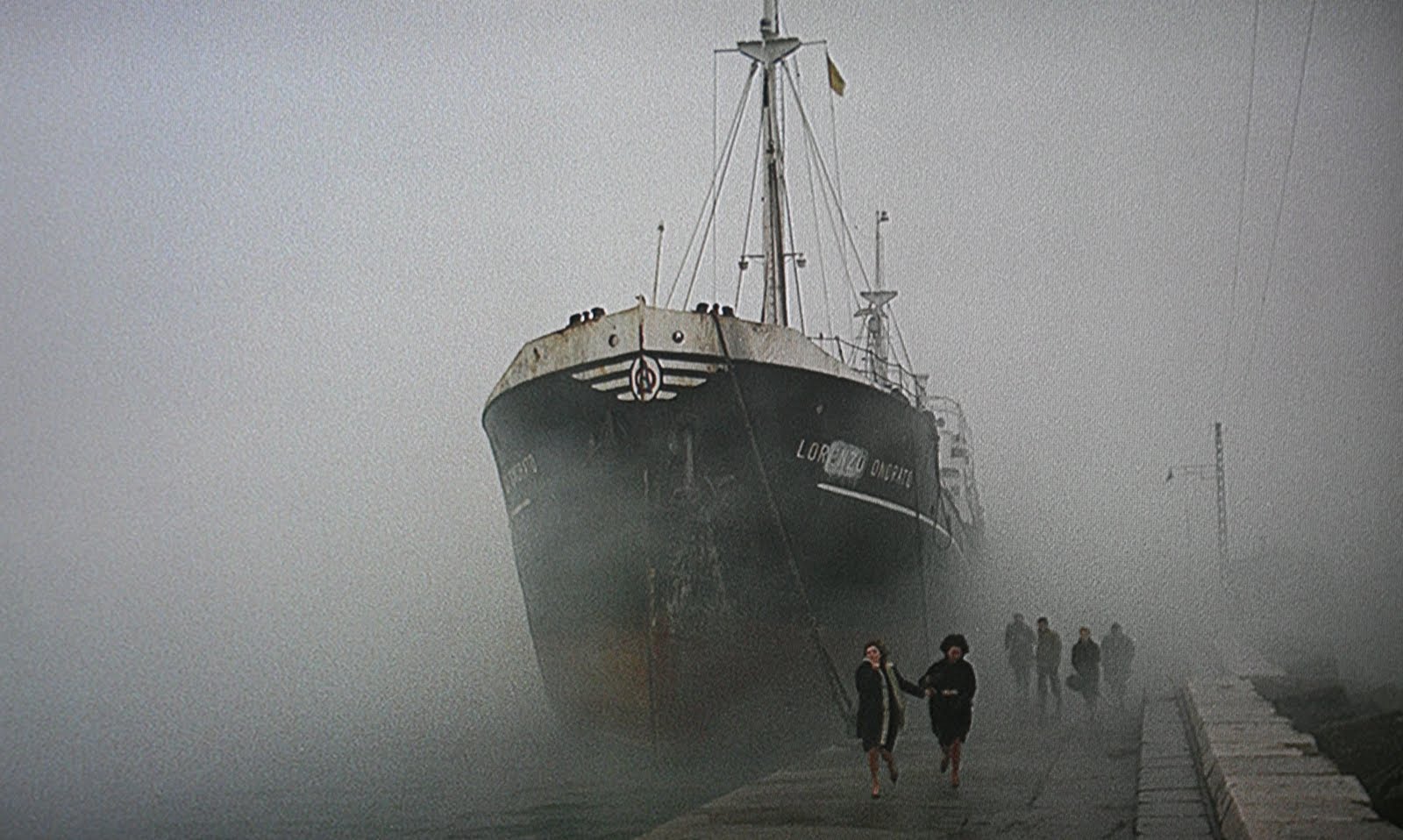
In the last scene, Valerio (Giuliana’s son) wonders if birds are killed by the poisonous toxins that are emitted nearby. Giuliana replies that birds have learned not to fly there.
Red Desert foreshadowed all the ecological issues that we face today as a result of insane mass industrialization. From today’s perspective, Giuliana’s fears do not seem so irrational as we encountered catastrophic outcomes.
9. Love Triangle
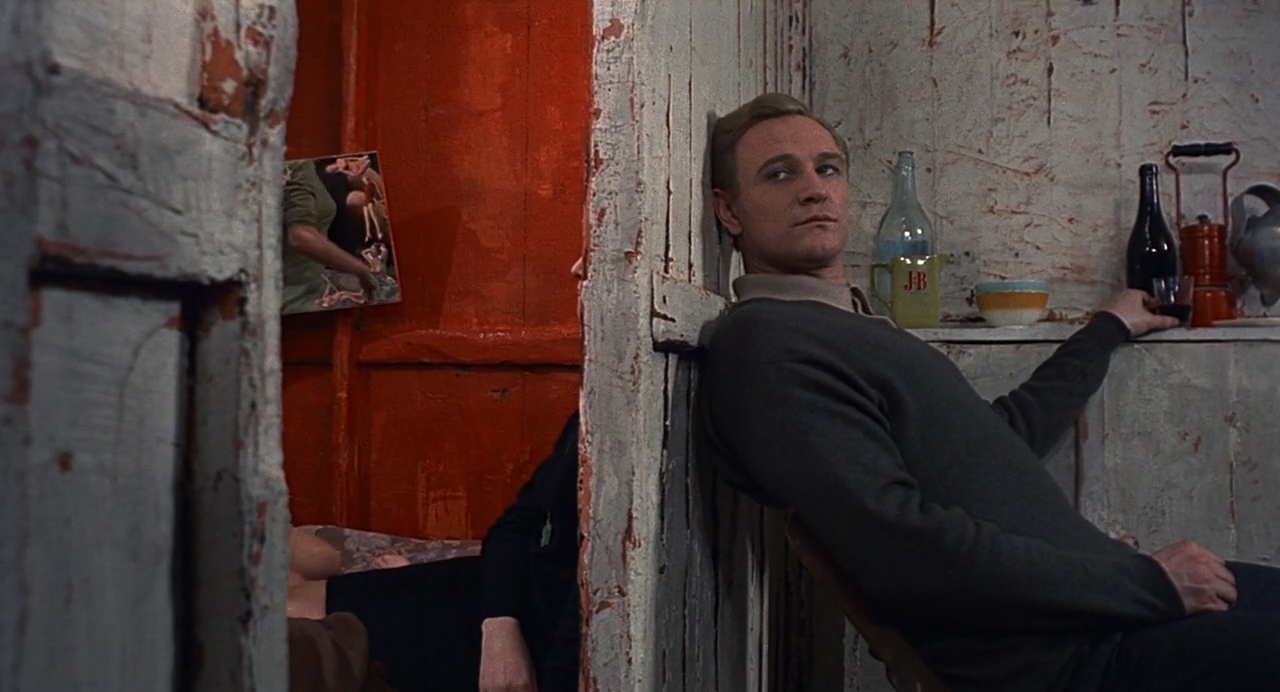
Antonioni liked love triangles, but not traditional ones. No fighting, no drama, no tension. These love triangles are outside of the classic understanding of the term; they form very casually on the brinks of each relationship.
In L’Avventura, when Ana disappears, Claudia and Sandro get together.
In La Notte, Lidia tries to make Giovanni interested in Valentina and once she leaves the party, they become captivated by one another. When Lidia gets back, these three people form a very odd type of chemistry between each other.
In Red Desert, this love triangle is a very subtle one. Giuliana’s husband, Ugo, overlooks her mental condition and she finds solace with Corrado. Sadly, it happens to be insufficient. For Giuliana, Ugo is only the source of terror and instability whereas Corrado strikes as someone to whom she can open-heartedly express her mental struggles. However, these two men are essentially more alike, and Giuliana is left all alone with her worries and fears.
10. No Need for Words
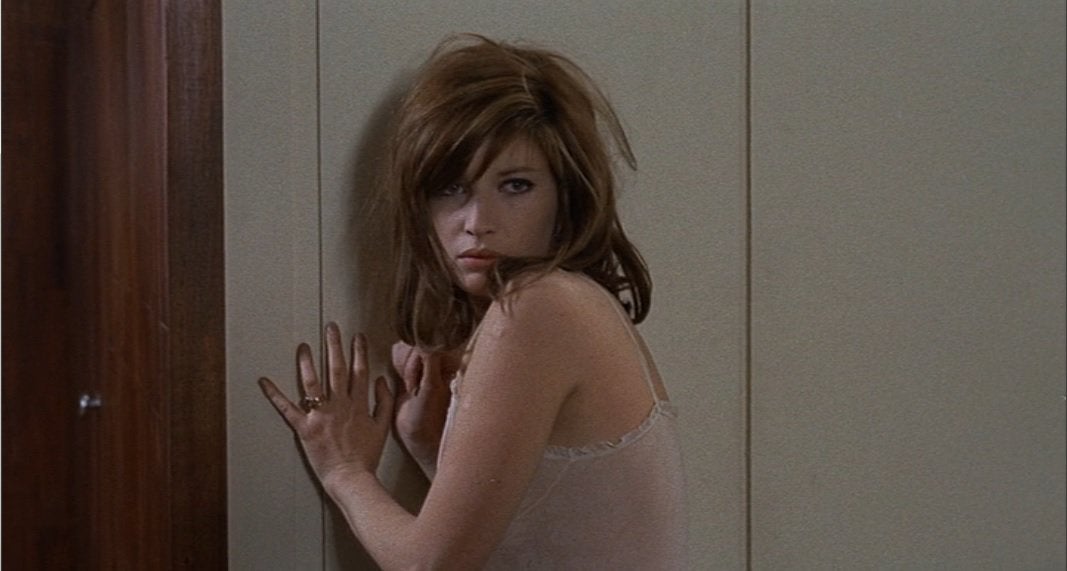
Antonioni speaks with space, architecture, and landscapes. He compares the grandeur of an open space (sometimes, stuffy building) to the nonentity of a human. He does not need many words to communicate with an audience. Although, many of his films are true gems of this kind of storytelling, Red Desert really standouts with its colossal factories, giant masts, and ill-colored smokestacks.
When Giuliana cannot understand a foreign sailor, she says – “We are all separate”. At first, it sounds like she refers to the language barrier, but after few seconds, we understand that she means something else.